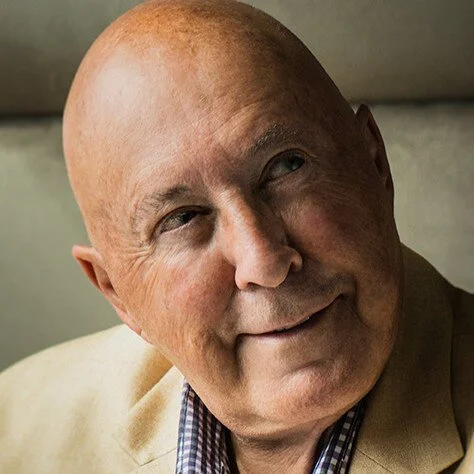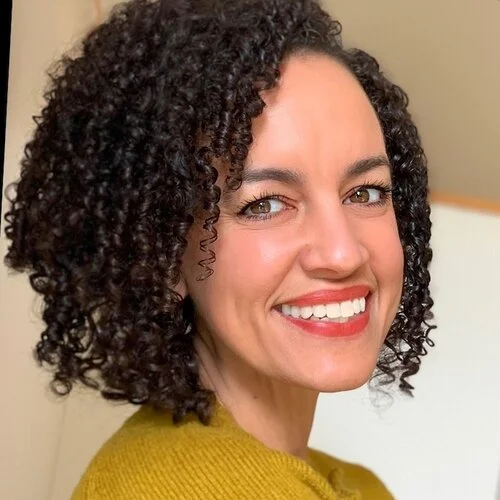Important Lessons from Canadian Leaders About Marketing After the Pandemic
2020 was a year like no other. Across industries, lockdown restrictions forced campaign closures, budget cuts, and financial losses. Globally, the world faced an unknown future and our daily lives came to a startling halt.
Marketing in a pandemic meant pivoting messaging to inspire hope and community. Across the country, Canadian leaders came together with innovative and creative campaigns that reminded the country what we were holding out for.
Now, with vaccinations rolling out and the end of COVID-19 in sight, it is once again time to reevaluate our tactics. What will marketing after the pandemic look like? Can we expect many of the lessons we learned during this time to stay true, or will everything go “back to normal”?
Surely, to understand the future we must consider the past. No one does this better than our country’s marketing leaders. To explore this issue, we spoke with industry leaders Cybele Negris, Frank Palmer, and Bianca Bujan to learn what we can expect from the coming years.
Cybele Negris
Cybele Negris is the CEO and Founder of Webnames.ca. She was named one of Hall of Fame Canada’s Top 100 Most Powerful Women and is an award-winning entrepreneur, board member, speaker, and columnist. Cybele was also inducted into this year’s Canada’s Marketing, Advertising, and PR Hall of Fame.
Cybele says the single most important lesson she took from the pandemic was the importance of adaptability. Her team was lucky enough to have the IT infrastructure and security systems in place to quickly move to work-from-home, but many of their annual conferences and events that had become key fixtures in their corporate life were cancelled. Yet, that didn’t stop them from connecting and networking, despite the lack of in-person events. “We’ve seen digital events, with virtual booths take flight as well as virtual networking events on the sidelines of virtual events. A key lesson here has been that buyers and sellers will find ways to meet, regardless of the medium, so long as the intent to provide or discover solutions to problems exists.”
As well, the pandemic forced many companies to look inwards at their fundamental processes like never before. “This more empathetic, deeply customer-centric approach is good for end-users and brands, in my opinion. The marketing industry will adapt and respond according to these trends, and we’ll see a lot of new innovation, particularly around personalized and experiential marketing.”
As for the future? Cybele says there are three major things that marketers need to keep in mind as they work after the pandemic.
Digital is now the real world. The pandemic has accelerated the move to digital for Canadians of all ages and businesses of all sizes, it is critical that marketers treat digital user experience and channels as a central pillar of their marketing strategy.
Authenticity has always been the holy grail of marketing messaging. The pandemic has brought that sharply into focus as brands are forced to put money where their mouths are. Reflect on your brand values and ensure that your actions, messages, and overarching narratives align with your company purpose
Tactics and strategies are a means to an end. As we close out a difficult year for marketers, businesses and customers, recenter your marketing campaigns and go back to first principles. Marketing is about matching products to customers. Validate your marketing strategy through the lens of customer context, product fit, and usability, and then let tactics flow from there
Frank Palmer
Frank Palmer is the Chairman of Palmer Stamnes DDB and Elevator. He has served more than 50 years in the Canadian marketing and advertising business and was inducted into this year’s Canada’s Marketing, Advertising, and PR Hall of Fame.
Frank says the most important lesson we can take forward is to “not to take things as they seem for granted.” He adds that we always make decisions based on the past, what we’ve seen or been told before. Now, that’s all gone. Going forward, Frank says we need to trust our own insights and build networks of informed, trusted advisors in order to improve our decision-making.
As well, he says marketers need to understand the motives of their clients and how that relates to their internal culture. “Today it’s not just about making money it’s about making a difference.” Companies should be re-evaluating their brand’s purpose and asking themselves what do they stand for and why? “The 4 P’s of Product, Price, Promotion, and Place, I feel now need to be replaced with S.A.V.E.-- Solutions, Access, Value, and Education.”
Once we move past the pandemic, Frank argues that the marketing industry has changed on a fundamental level. Remote and flex business operations will be here for some time. “The good news is that we have eliminated the majority of the barriers to further collaboration, cut the red tape and found ways to speed up production and in many ways at a lower cost,” Frank says, “... the winners will be those that have already begun creating their new playbooks… Watch for a new wave on innovation and the rise of the independents.”
Bianca Bujan
Bianca Bujan is an award-winning writer with bylines in Lonely Planet, Food & Wine, Huffington Post, The Globe & Mail, among others. She was recently featured in Forbes as one of the 15 Black travel writers to follow and works as an editor for both The Self Publishing Agency and WestCoast Families magazine. Her own business, Bee Communications helps non-profit organizations and small businesses create buzz through media outreach and strategic marketing and communications efforts.
As Bianca looks towards the future of marketing, she stresses the importance of fluidity, adaptability, and embracing change. Nothing is as it was, and that’s okay. Perhaps, it’s even better than it was.
Bianca has these tips for marketing after the pandemic:
Stay on top of the media landscape and be in the know when it comes to closures, additions, and changes made to media outlets and digital opportunities.
Always have a backup plan when creating your marketing plans. Keep a few ideas in your back pocket, and set a little budget aside, just in case.
Consider various ways to send out the same message. Diversify the output of your campaigns, weaving in paid media, earned media - both online and offline.
She is hopeful that, internally, businesses and individuals will become more mindful of how they spend their time. “My hope is that people will become more mindful of how they spend their time - fewer meetings, less overtime hours, and carved out time for personal wellness.”
Written by Hannah Macready



